
- Average Rating:
- Not yet rated
- Topic Areas:
- Couples Therapy | Workshops | Love | Therapist Development
- Categories:
- Couples Conference | Couples Conference 2013
- Faculty:
- Bill O'Hanlon, MS
- Duration:
- 1:23:36
- Format:
- Audio Only
- Original Program Date:
- Apr 20, 2013
- Short Description:
- Using movie clips, this presentation will illustrate a simple five-step model for effectively intervening with couples. Bring the popcorn and have fun while you learn.
- Price:
- $15.00 - Base Price
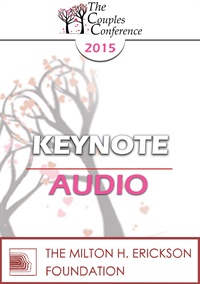
- Average Rating:
- Not yet rated
- Topic Areas:
- Couples Therapy | Attachment | Keynotes | Anxiety | Intimacy | Sex and Sexuality | Love
- Categories:
- Couples Conference | Couples Conference 2015
- Faculty:
- Esther Perel, MA, LMFT
- Duration:
- 57:21
- Format:
- Audio Only
- Original Program Date:
- Apr 25, 2015
- Short Description:
- This bold take on intimacy and sex grapples with the obstacles and anxieties that arise when our need for secure love conflicts with our pursuit of passion. We will tackle eroticism as a quality of vitality in relationships extending far beyond mere sexuality and show how reconciling these two competing needs is at the heart of sustaining desire over time. We will address paradoxes of desire and how social forces inhibit erotic expression; attachment history and the erotic blueprint.
- Price:
- $15.00 - Base Price
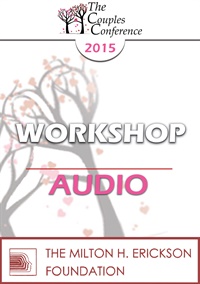
- Average Rating:
- Not yet rated
- Topic Areas:
- Couples Therapy | Infidelity | Sex and Sexuality | Workshops | Love | Intimacy
- Categories:
- Couples Conference | Couples Conference 2015
- Faculty:
- Esther Perel, MA, LMFT
- Duration:
- 1:40:17
- Format:
- Audio Only
- Original Program Date:
- Apr 25, 2015
- Short Description:
- Through case examples, Esther Perel will show how to effectively engage such issues as intimacy, sexuality and infidelity by creating separate spaces where each partner can explore his/her feelings and experiences along with larger relationship dynamics. We will show how to navigate privacy and secrecy, honesty and transparency, stage interventions around sexual impasses, and structure a safe and flexible therapeutic environment to work effectively with infidelity.
- Price:
- $15.00 - Base Price
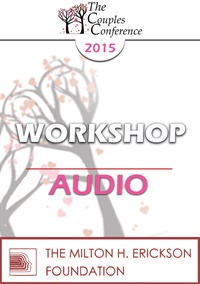
- Average Rating:
- Not yet rated
- Topic Areas:
- Couples Therapy | Workshops | Love | Relationships | Addiction | Sex and Sexuality | Trauma | Attunement | Communication
- Categories:
- Couples Conference | Couples Conference 2015
- Faculty:
- Alexandra Katehakis, MA, MFT
- Duration:
- 1:55:21
- Format:
- Audio Only
- Original Program Date:
- Apr 25, 2015
- Short Description:
- Sex addiction destroys trust in relationships, traumatizing the partner, the sex addict, and the family system. Relational trauma left untreated will have both parties and the entire system crumbling. Attunement, communication, and empathy (ACE) are the three pronged stool that supports the long, and sometimes arduous, journey to restoring trust. The goal is to recognize the signs of relational trauma in both parties, and compare the difference between relational trauma and co-dependence
- Price:
- $15.00 - Base Price
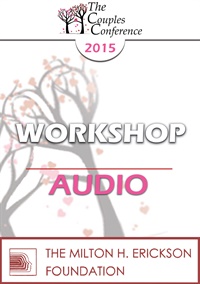
- Average Rating:
- Not yet rated
- Topic Areas:
- Couples Therapy | Workshops | Love | Communication | Intimacy | Relationships
- Categories:
- Couples Conference | Couples Conference 2015
- Faculty:
- Pat Love, EdD
- Duration:
- 1:34:46
- Format:
- Audio Only
- Original Program Date:
- Apr 25, 2015
- Short Description:
- While we love those deep, intimate conversations that bring us close together and join our spirits, what role does difference play in passion? Come explore this and other questions related to relational happiness. We will identify two empathic systems, and understand the role of dopamine in intimate relationships.
- Price:
- $15.00 - Base Price
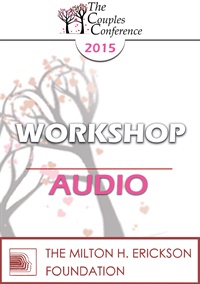
- Average Rating:
- Not yet rated
- Topic Areas:
- Couples Therapy | Workshops | Intimacy | Love | Sex and Sexuality
- Categories:
- Couples Conference | Couples Conference 2015
- Faculty:
- Esther Perel, MA, LMFT
- Duration:
- 1:27:43
- Format:
- Audio Only
- Original Program Date:
- Apr 25, 2015
- Short Description:
- Why does great sex so often fade for couples who claim to love each other as much as ever? Why doesn’t good intimacy guarantee good sex? When you love , how does it feel and when you Desire how is it different? Loss of Desire brings many people into our offices. It is the prime sexual complaint that leads relational unhappiness, infidelity and even divorce. For the most part, sexuality has been relegated to sex therapy and couple therapy has been a desexualized practice. Yet, love in our digital age puts sex at the center of couples’ lives.
- Price:
- $15.00 - Base Price
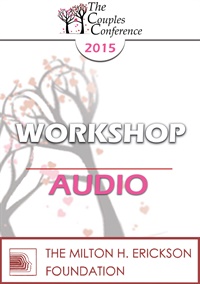
- Average Rating:
- Not yet rated
- Topic Areas:
- Addiction | Workshops | Love
- Categories:
- Couples Conference | Couples Conference 2015
- Faculty:
- Pat Love, EdD
- Duration:
- 1:46:03
- Format:
- Audio Only
- Original Program Date:
- Apr 26, 2015
- Short Description:
- This workshop will explore the fine line between love and addiction. Therapeutic strategies and questions will be explored, and you will learn three predictors of compulsion/ addiction.
- Price:
- $15.00 - Base Price
Tags: Addiction Love Couples Therapy
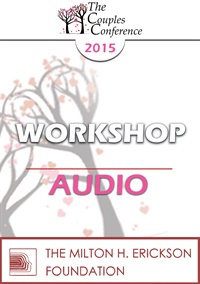
- Average Rating:
- Not yet rated
- Topic Areas:
- Couples Therapy | Workshops | Love | Communication | Conflict | Relationships
- Categories:
- Couples Conference | Couples Conference 2015
- Faculty:
- Bill O'Hanlon, MS
- Duration:
- 1:36:23
- Format:
- Audio Only
- Original Program Date:
- Apr 26, 2015
- Short Description:
- Couples, because they come from different background and have different understandings, often use the same words to mean different things, leading to unnecessary conflict. This workshop will provide a simple, but powerful method to quickly resolve couples conflicts using action talk.
- Price:
- $15.00 - Base Price
- Average Rating:
- Not yet rated
- Topic Areas:
- Neuroscience | Addiction | Keynotes | Love | Couples Therapy
- Categories:
- Couples Conference | Couples Conference 2016
- Faculty:
- Helen E. Fisher, PhD
- Course Levels:
- Master Degree or Higher in Health-Related Field
- Duration:
- 01:55:21
- Format:
- Audio and Video
- Original Program Date:
- May 13, 2016
- Short Description:
- Biological anthropologist Helen Fisher discusses three brain systems that evolved for mating and reproduction: the sex drive; feelings of intense romantic love; and feelings of deep attachment to a long term partner. She then focuses on her brain scanning research (using fMRI) on romantic rejection and the trajectory of love addiction following rejection. She concludes with discussion of the brain circuits associated with long-term partnership happiness and the future of relationships in the digital age—what she calls “slow love.”
- Price:
-
Sale is $29.00
price reduced from Base Price - $59.00

- Average Rating:
- Not yet rated
- Topic Areas:
- Addiction | Workshops | Love | Relationships | Attachment | Couples Therapy | Sex and Sexuality | Attunement
- Categories:
- Couples Conference | Couples Conference 2017
- Faculty:
- Alexandra Katehakis, MA, MFT
- Duration:
- 1:57:10
- Format:
- Audio Only
- Original Program Date:
- Mar 31, 2017
- Short Description:
- Sex addiction destroys trust in relationships, traumatizing the partner, the sex addict, and the family system. Betrayal is an attachment injury that topples the regulatory systems of both parties, and when relational trauma is left untreated, both parties and the family system will suffer. Thus, when acute emotional and physical symptoms become chronic, treatment becomes more difficult making the prognosis for restoring the coupleship poor. Rapid intervention and interactive regulation between the couple is essential for relational healing to begin immediately. Attunement, communication, and empathy (ACE) are the three-pronged stool that supports the long, and sometimes arduous journey to restoring trust.
- Price:
- $15.00 - Base Price
Please wait ...


